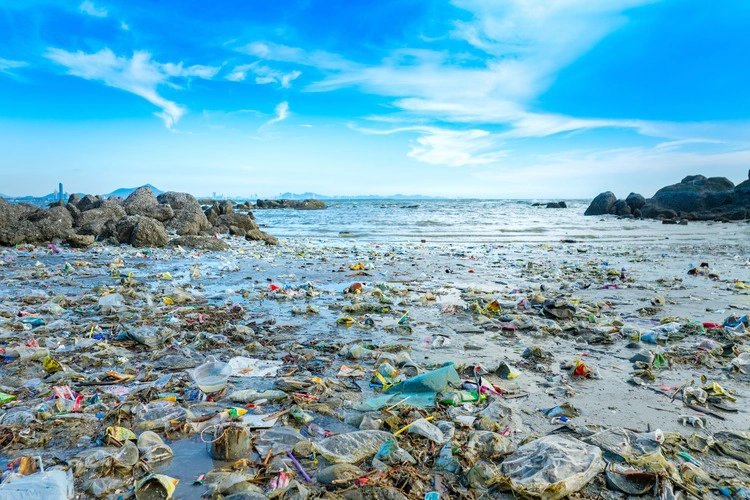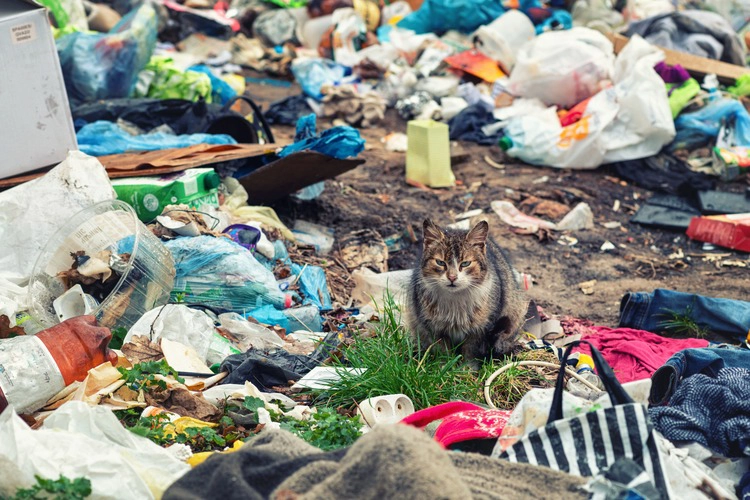
USA to join countries including EU member states, Canada and Rwanda in plastic treaty to reduce global consumption – but is the treaty enough?
By
The USA will support the Global Plastics Treaty that calls for a reduction in the quantity of plastic produced each year, according to a source close to US negotiators. Marking a shift from their previous stance – that left such decisions up to each individual countries – the US now joins countries including members of the EU, South Korea, Rwanda and Canada in the fight against plastic consumption.
The treaty – signed by 176 countries in March 2022 – pledges to end plastic pollution, a move described as ‘the most significant environmental multilateral deal since the Paris Accord’ by executive director of the UN Environment Programme Inger Andersen.
The USA – which in 2021 produced 40 million tons of municipal plastic waste, of which 80 per cent was sent to landfill – is one of the biggest consumers of plastic worldwide. Without measures to slow the rate of plastic consumption, it is expected that the US will surpass 140 million metric tons of plastic waste by 2060. Most plastic waste within the country is from plastic containers and packaging, amounting to an estimated total of 12 per cent of all US municipal solid waste generation.
As well as decreasing the quantity of plastic produced, the Global Plastic Treaty also plans to tackle a list of chemicals used during plastic production that pose an environmental risk. This decision is at odds with the American Chemistry Council, which supports the treaty but does not endorse capping the use of particular chemicals.

‘With today’s shift in position to support plastic production caps and regulate chemicals via the UN Plastics Agreement, the White House has signalled it is willing to betray US manufacturing and the hundreds of thousands of jobs it supports,’ said president of the ACC, Chris Jahn.
Meanwhile, countries including Saudi Arabia and China have opposed the treaty, instead calling upon less contentious topics such as product design and plastic waste management to be focused upon as measures to tackle the problem of plastic. This is despite the production of four hundred million tonnes worth of plastic globally every year, according to the UN Environment Programme. And of the 16,000 known component chemical ingredients in plastic, many have been linked to health issues such as changes in hormone activity, fertility issues, heart disease and several types of cancer.
‘It has been clear for decades that the current level of plastic production has been unsustainable, and its high time that the US and the other leading economies of the world took their head of out the sand on the disastrous consequences of a business as usual approach,’ said co-founder of A Plastic Planet and Plastic Health Council, Sian Sutherland.
Is the treaty doing enough?
In December 2023, the treaty came under fire from The Plastic Health Council (PHC), who dubbed it as showing ‘zero ambition’. Before its third round of talks, the text of the treaty underwent a gradual watering down of commitments. According to the PHC, the treaty fails to set out legally binding targets and timeframes for the curtailing and elimination of plastic production.

Concerningly, the treaty also includes a clause permitting any party to apply for an ‘exemption’ or deferral from enacting the policies – despite the UN’s pledge to tackle plastic pollution by 2024.
For environmental and public health groups the current plan is simply not enough. Plastic penetrates the most remote corners of our planet, threatening ocean life with toxic microplastics, to choking mangroves and delicate ecosystems in the depths of the jungle.
‘What began as an almost invisible trickle near the beginning of the 20th century now in the 21st has become a monstrous tsunami,’ said Dr John Peterson Myers, founder of Environmental Health Sciences and member of the Plastic Health Council. ‘Yet industry projections based on “business-as-usual” anticipate the volume of plastics created will double by the mid-century.’
‘We must choose. Will we smother the Earth and ourselves with toxic plastics? Or do we have the courage and foresight to stop the onslaught?’




